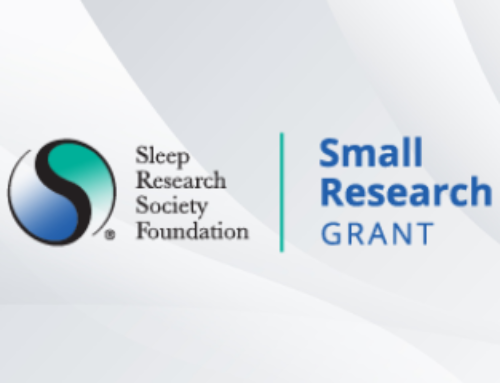The AASM Foundation is dedicated to developing the careers of sleep and circadian investigators by increasing support for sleep and circadian investigators at various stages of their careers. This funding will support projects which will study a range of sleep disorders and bolster the careers of sleep researchers. The Foundation awarded the following grants for Cycle 2 in 2023.
 Focused Projects Grant For Junior Investigators
Focused Projects Grant For Junior Investigators
Sydney Aten, PhD
Beth Israel Deaconess Medical Center
$40,000
Circadian Control of Sexual Behavior and Underlying (Hypothalamic) Brain Circuitry in Mice
PROJECT DESCRIPTION
Infertility affects many couples, and while the exact cause of infertility is not always known, dysfunction in circadian timekeeping capacity likely plays a role in the inability to conceive. This project will examine whether time-of-day changes in sexual behavior influence reproductive success in mice and whether sexual behavior can be manipulated throughout the day to optimize fertility. Results may lay groundwork for understanding how circuits that modulate sexual behavior can be harnessed to treat infertility.
IMPACT
From a research perspective, Dr. Aten hopes to learn how the body’s internal clock regulates sexual behavior and reproductive success across the 24 hr day and how such brain circuitry can be altered to increase chances for conception. From a career standpoint, this AASM grant will help Dr. Aten acquire and sharpen the skills needed to become an independent researcher within the field(s) of sleep and circadian biology.
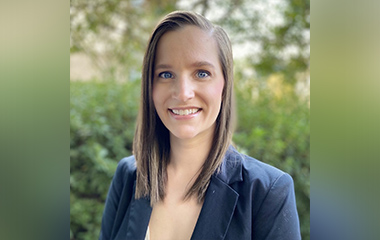 Focused Projects Grant For Junior Investigators
Focused Projects Grant For Junior Investigators
Katie Cederberg, PhD
Stanford University
$40,000
Multi-Omic Profiling in Restless Legs Syndrome
PROJECT DESCRIPTION
There is a critical need for a standardized measure to accurately diagnose restless legs syndrome (RLS). The mechanisms that cause RLS are not well understood, hindering the development of targeted treatment methods. The proposed project will leverage large datasets to correlate proteomic and metabolomic data and identify key biomarkers of RLS. The result of the proposed project permits the examination of mechanisms responsible for RLS and will provide a clinically available and objective measure to better diagnose RLS.
IMPACT
Dr. Cederberg is an early career investigator with a longstanding commitment to studying RLS. The training and mentoring plan will increase her understanding and technical skills in multi-omics and enhance career skills that will fully prepare her to launch her independent research career. This award will provide the necessary mentorship and support to establish a track record of funding and make Dr. Cederberg a competitive applicant for larger grants that will guarantee her success as an independent investigator in sleep research.
 Bridge to Success Grant
Bridge to Success Grant
Ashley Curtis, PhD
University of South Florida
$99,992
Novel Adaptive Cognitive Training in Autistic Adults with Co-Occurring Insomnia
PROJECT DESCRIPTION
This study aims to address challenges faced by autistic adults in terms of cognition and adaptive functioning, exacerbated by the high prevalence of insomnia (~80%) among this population. Through a mixed-methods approach, we will iteratively optimize an adaptive cognitive training program for autistic adults with insomnia (COGMUSE-AUT; Stage-1). We will then pilot test (Stage-2) COGMUSE-AUT in a sample (n=15) of autistic adults with co-occurring insomnia, assessing its impact on cognition, sleep, and daytime functioning outcomes.
IMPACT
This AASM Foundation bridge funding will enable Dr. Curtis to gain expertise in designing and evaluating cognitive and sleep protocols for autistic adults with co-occurring insomnia, and in turn, provide a strong foundation for future planned federal grant submissions. The project has high potential to benefit the autistic and insomnia communities as the novel intervention will be optimized for target end users and it can be easily disseminated at home.
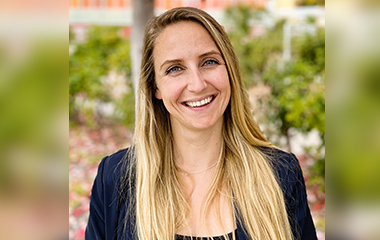 Focused Projects Grant for Junior Investigators: National Sleep Research Resource
Focused Projects Grant for Junior Investigators: National Sleep Research Resource
Renske Lok, PhD
Stanford University
$40,000
Investigating Sleep-Wake Fragmentation and its Moderators in the Hispanic Community: Implications for Diabetes Management
PROJECT DESCRIPTION
In the United States, Hispanics have a heightened risk of developing type 2 diabetes compared to non-Hispanic individuals, with inadequate sleep associated with this elevated risk. This research focuses on uncovering factors leading to sleep disruption as it relates to diabetes in the Hispanic Community Health Study. Using cutting-edge machine learning and analyses, the project aims to inform targeted interventions that improve sleep health, overall well-being, and contribute to diabetes prevention within the Hispanic community.
IMPACT
Dr. Lok’s goal is to determine the factors contributing to sleep-wake fragmentation in Hispanic individuals, especially as they relate to diabetes and diabetes risk, paving the way for targeted interventions and disparities reduction. This funding will help Dr. Lok expand her training in understanding factors related to how sleep is associated with a specific medical outcome and how this relationship is moderated by demographics and factors related to ethnicity.
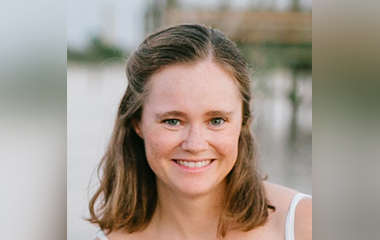 Focused Projects Grant for Junior Investigators: National Sleep Research Resource
Focused Projects Grant for Junior Investigators: National Sleep Research Resource
Kaitlin Potts, PhD
The Brigham and Women’s Hospital
$40,000
Investigating the Relationship Between Sleep and Circadian Timing, Disruption, and 24-Hour Rhythms with Habitual Diet Quality
PROJECT DESCRIPTION
Sleep and diet both impact cardiometabolic disease risk and they seem to have bidirectional relationships with each other. However, few studies have explored associations between sleep and diet by incorporating multidimensional sleep domains, including circadian rhythm measures, nor with measures of diet timing. This study will investigate associations between objective sleep and rest-activity rhythms with both diet quality and timing in community-based observational cohorts. These findings could lead to improved interventions for cardiometabolic risk reduction.
IMPACT
This award will provide Dr. Potts with essential training in sleep epidemiology methods and measurement, while also providing important preliminary data for future grant applications. As a postdoctoral research fellow, she is at a critical phase of her career. The funding provided by the AASMF will allow her to build her skills and publication record to improve her competitiveness for a larger career development award, which will allow her to continue a research career in sleep.
 Physician Scientist Training Grant
Physician Scientist Training Grant
Zhikui Wei, MD, PhD
Johns Hopkins University School of Medicine
$73,002
Links of Objective and Self-Reported Sleep with Adipokines in Older Adults
PROJECT DESCRIPTION
Sleep disturbance and metabolic dysfunction are common in older adults, yet the underlying mechanism linking these two conditions is unclear. This study will utilize data from the Baltimore Longitudinal Study of Aging (BLSA) to examine the associations of self-report and objective sleep indices with changes in adipokine levels in older adults. We hypothesize that indices of sleep disturbance are associated with lower leptin and adiponectin levels, contributing to systemic metabolic dysfunction in older adults.
IMPACT
Dr. Wei previously studied sleep and metabolism using basic science techniques. This research will extend his research training from basic science to human studies and provide instructions in using epidemiologic methods to study sleep and metabolism. Building on Dr. Wei’s experience with animal research, this study will be a critical step in his transition to conducting research in human populations and establishing himself as an independent investigator studying sleep, metabolism, and aging-related health outcomes in humans.
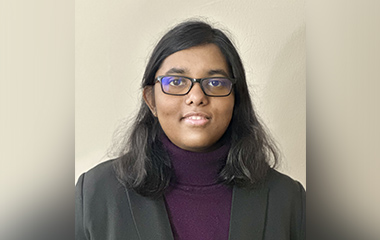 Focused Projects Grant for Junior Investigators: Management and Treatment of Sleep Apnea
Focused Projects Grant for Junior Investigators: Management and Treatment of Sleep Apnea
Sajila Wickramaratne, PhD
Icahn School of Medicine at Mount Sinai
This grant was made possible by ResMed
$49,849.34
Physiology Guided AI/ML Approach for Redefining Severity of OSA
PROJECT DESCRIPTION
This project proposes to combine the measures of sleep apnea burden (ventilatory, hypoxic, arousal, and autonomic) using machine learning approaches to test whether a stronger association of obstructive sleep apnea (OSA) with adverse health outcomes is detected. A data-driven combination of fully automated ventilatory/hypoxic/arousal/autonomic burdens can be used to guide clinical decision making to better manage and treat apnea outcomes is a key gap that our project aims to address.
IMPACT
This project will use robust AI/ML methods using interpretable features guided by our understanding of OSA pathophysiology to go above and beyond classical measures of OSA severity, i.e., AHI, that have shown inconsistent relationships to outcomes. Data from this pilot project will provide data necessary for subsequent K99/R00 submission to assess the utility of the developed AI/ML models in predicting treatment response in OSA for cardiovascular outcomes.




